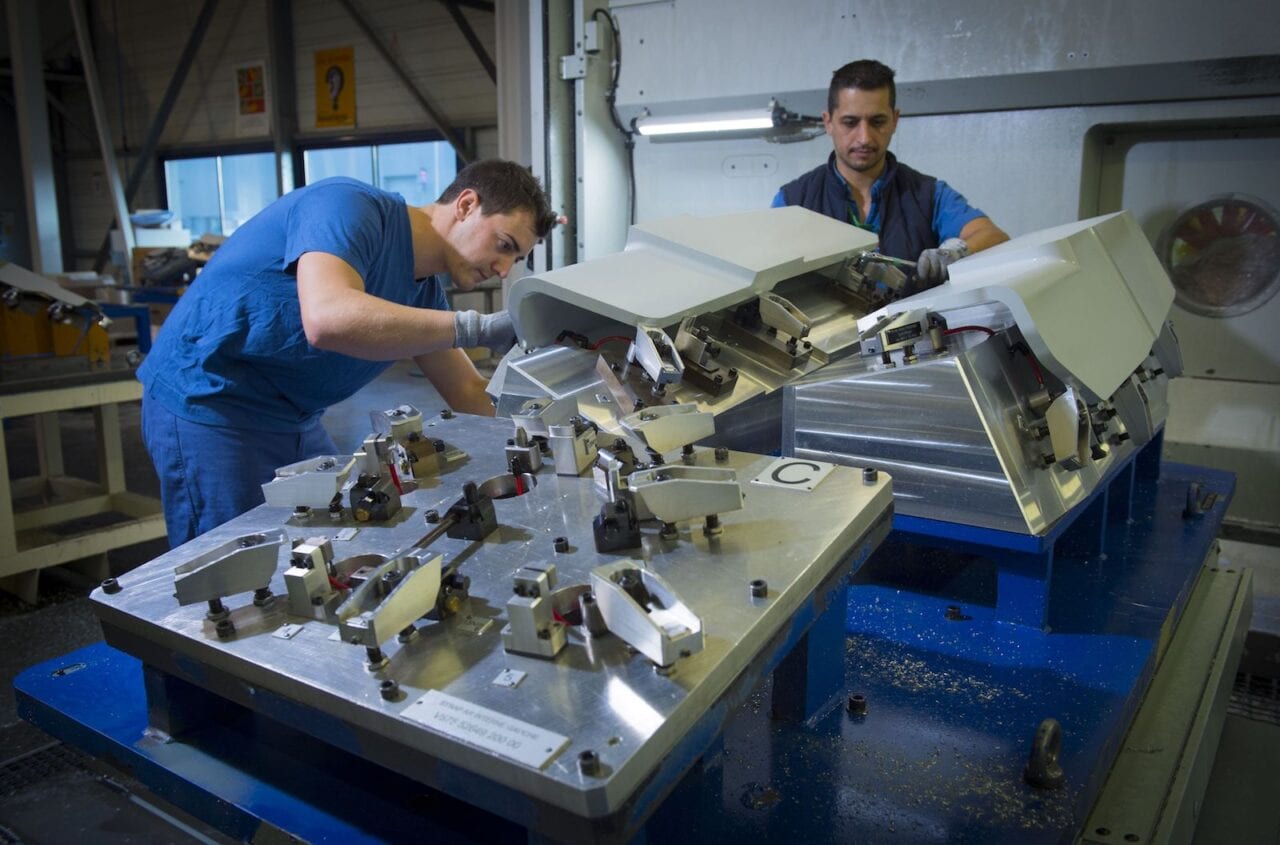
The Office of the United States Trade Representative (USTR) is adjusting tariffs on large civil aircraft parts manufactured in France and Germany, such as those assembled on the final assembly line by Airbus in Toulouse, pictured here. (Airbus)
New tariffs on European Union (EU) aircraft manufacturing parts from the Office of the United States Trade Representative (USTR) that were announced last month are set to become effective on Jan. 12. The tariffs are just the latest escalation in the tit-for-tat tariff battle between U.S. and European regulatory officials over large civil aircraft subsidies involving aircraft manufacturers Airbus and Boeing.
The new tariffs from the U.S. are in response to November tariffs from the EU and will affect EU fuselages and fuselage sections, wings and wing assemblies, and horizontal and vertical stabilizers. Airbus condemned the new tariffs.
“USTR’s expansion of tariffs to include components for aircraft manufactured in the U.S. – by American workers – is counterproductive in every way,” a representative for Airbus said in an emailed statement to Avionics International. “Airbus regrets that USTR has decided to escalate this dispute by taking a step that also hurts U.S. manufacturing, U.S. workers, and U.S. consumers. This will not contribute to a climate of trust to create a negotiated solution.”
The dispute began in 2019 as a result of the World Trade Organization (WTO) Large Civil Aircraft litigation which involved EU subsides equaling $7.5 billion annually, according to the USTR. The U.S. determined they were denied rights under the WTO Agreement and placed additional duties on products from certain EU member states in Oct. 2019.
The initial tariffs were then increased again by the U.S. in March and June 2020. The EU responded in Nov. 2020 imposing additional duties on U.S. large civil aircraft and other goods equaling a trade value of $4 billion.
On Dec. 30, USTR published its response to the action taken by the EU in November, levying additional tariffs to aircraft parts manufactured in France and Germany.
“The EU has represented that its retaliatory action mirrors the action taken by the United States in this investigation, but that is not accurate,” the notice from the USTR said. “Specifically, the EU’s action does not mirror the U.S. action because the methodology used by the EU to exercise its $4 billion authorization relies on a benchmark reference period affected by the economic downturn caused by the COVID pandemic. Under this methodology, the EU was able to cover a greater volume of imports than if, like the United States, it had used data from a period when trade was not affected by the pandemic.”
The USTR said their actions were not escalatory because the adjusted product coverage was less than the full amount of what would have been justified using the EU’s chosen time period.
However, Airbus disagreed and said in their statement that the new tariffs were unwarranted.
“Airbus trusts that Europe will respond appropriately to defend its interests and the interests of all European companies and sectors, including Airbus, targeted by these unwarranted and counterproductive tariffs,” Airbus said in an emailed statement.